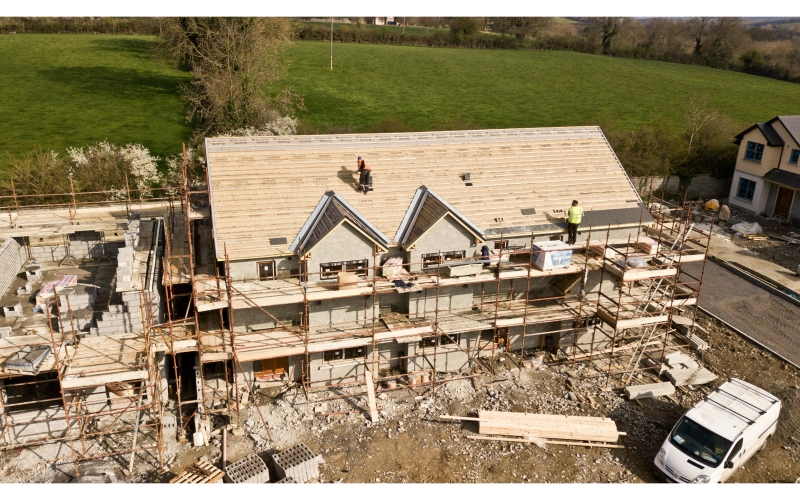What Does 'Contingent' Mean in Real Estate?

When you are on the lookout for the perfect home and now you actually see one, you might encounter the word “Contingent.” Now you’re wondering—is the home still for sale? Can I make an offer? Should I move on?
Before you move on it is important to know what “contingent” means for you as a buyer. And as for the first time home sellers, this guide could also help you in choosing the right strategy in you home selling journey.
What Does 'Contingent' Mean in Real Estate?
In real estate, the word “contingent” means that a seller has accepted an offer on the home—but the sale isn’t final yet.
Why not?
Because the sale depends on certain things happening first and these things are then called the contingencies. So when you see a home marked “contingent,” it simply means:
“Someone is trying to buy it, and the seller agrees to the offer, but the sale is not final until certain conditions of the seller are met!”
In other words, the sale is still on hold, and whatever agreement they have is not yet legally binding.
When Do Buyers Hear the Word 'Contingent'?
So, “contingent” is the word you’ll hear in the middle part of the home buying journey—right after an offer is accepted but before the closing, and this is also what is called “under contract.”
This is the stage where no one can just steal the deal and make a better offer, no! The seller just wants to see if the buyer can make arrangements for things like getting a home inspection, finalizing their mortgage loan, and/or making sure the home appraises at the right value. These are the things a seller typically needs from its buyer.
What Happens During the Contingent Phase?
This phase is like a waiting period. Everyone is working to make sure everything checks out before the sale is final. As mentioned earlier, the buyer commonly:
✅ Schedule a home inspection – to make sure the house is in good shape
✅ Work with their lender – to get full approval for their mortgage
✅ Order an appraisal – to make sure the home’s value matches the loan amount
✅ Check the property title – to make sure no one else can claim the home
Now what if something goes sideways and one of them is not met? This is where the seller or even the buyer cancels the deal, which is why if a property is contingent, it is not yet final if all of the conditions are met.
Can You Still Make an Offer on a Contingent Home?
Yes! Again, the transaction is not yet final and unrealized if one of the stipulated contingencies is missing. If your offer hastens the process, then the seller would be more likely to make a deal with you. Usually, sellers are open to “backup offers” because not all buyers who are interested in contingency property are 100% certain that the deal will go through.
However, just because you can make a deal doesn’t mean that you can easily make one with the seller because some sellers might not be interested in other offers. The seller, in some situations, might still need to see if the current offer will go smoothly, which will cause you delay.
Another important thing to note is that the seller might already have an offer he settles with. So, these are some important notes to remind you.
Contingent vs. Pending: What’s the Difference?
In very simple words, contingent means that the seller just accepted an offer and the conditions are currently being processed. It might also be that the contingencies have been fulfilled, but they are not yet close to closing.
On the other hand, pending will always be when the seller’s contingencies have been satisfied and the buyer and seller are now in talks for the final price before signing. Basically, a step before closing.
So remember: Contingent means the deal is still in progress. Pending means it’s almost done.
Why This Term Matters for Buyers and Sellers
As a buyer, you should know that a contingent home isn’t completely off the market. If you find a home you love that’s marked contingent, you might still have a chance to make an offer, especially if you’re willing to wait for a slight delay or maybe if you are willing to be given no chance at all; basically hoping for just “maybe” depending on the seller’s motivations. It also helps to understand the risks you might face during this phase, like financing or inspection issues.
For sellers, knowing that your home is in the contingent stage means the deal isn’t done yet. You still need the buyer to meet certain conditions. That means staying in touch with your real estate agent, keeping the process moving, and being ready for next steps, or for the possibility that the deal might not go through.
In short, the word “contingent” isn’t just a label on a listing saying that “these are the things I want if you want this property”.
To Sum It All Up
If you're a buyer, don’t skip over homes marked contingent they might still become available especially if you are really interested in it. And if you're a seller, remember that you are basically asking for what you want or no sale at all.
Recent Blog

What Does Under Contract Mean in Real Estate?
"Under contract" indicates a home has an accepted offer but isn’t sold until all conditions are met.
Read MoreWhat Does Under Contract Mean in Real Estate?
How Rent-to-Own Works: Process & Key Details
A rent-to-own agreement allows you to rent a home now and buy it later, with part of your rent going toward the purchase price.
Read MoreHow Rent-to-Own Works: Process & Key Details
Different Types of Houses and Which One is For You?
There are a lot of types of houses that exist today, but only one would suit you the most!
Read MoreDifferent Types of Houses and Which One is For You?
What is an HOA? Understanding Homeowners Associations
Who decides what’s allowed and what isn’t? And what exactly are you paying for?
Read MoreWhat is an HOA? Understanding Homeowners Associations
How Long Does It Take to Build a House
Building a house typically takes 6 to 12 months, depending on size, design, permits, weather, and construction type.
Read MoreHow Long Does It Take to Build a House
What Is Earnest Money? A Simple Guide for First-Time Homebuyers
Earnest money is a deposit you make after your offer on a home is accepted. It shows the seller that you’re serious about buying.
Read MoreWhat Is Earnest Money? A Simple Guide for First-Time Homebuyers
How Can I See Old Listing Photos of a House
Use the site: operator on Google or Google Street View to find old listing photos of a house easily and quickly.
Read MoreHow Can I See Old Listing Photos of a House
What Does a Commercial Property Buyer’s Agent Do? (And Why You Need One)
When you work with a commercial property buyer’s agent, you’re not just hiring someone to open doors. You’re getting a full-time guide through every step of the buying process.
Read MoreWhat Does a Commercial Property Buyer’s Agent Do? (And Why You Need One)
The Tools You Need as a Real Estate Agent
With all the tools we have today, it is almost impossible to have a reason to quit early. We have it easier today than it was 10 or 20 years ago
Read MoreThe Tools You Need as a Real Estate Agent
Real Estate Marketing for Agents: The Modern Playbook to Get More Clients
Marketing helps agents stand out in a competitive market. Use both online and offline strategies to grow your reach. Tools like social media, SEO, and video help you build trust. Platforms like Zillow and Realtor.com let you show up in local searches. The goal is simple: stay visible, stay consistent, stay helpful
Read MoreReal Estate Marketing for Agents: The Modern Playbook to Get More Clients
8 Common Mistakes Home Buyers Make
These common mistakes often cause buyers to incur more costs than expected. Make sure you understand what these are.
Read More8 Common Mistakes Home Buyers Make
Why Should Home Sellers Offer Buyer Broker Compensation?
Paying buyer broker compensation can boost interest, reduce buyer costs, and lead to faster, smoother home sales, giving sellers a real market edge.
Read MoreWhy Should Home Sellers Offer Buyer Broker Compensation?